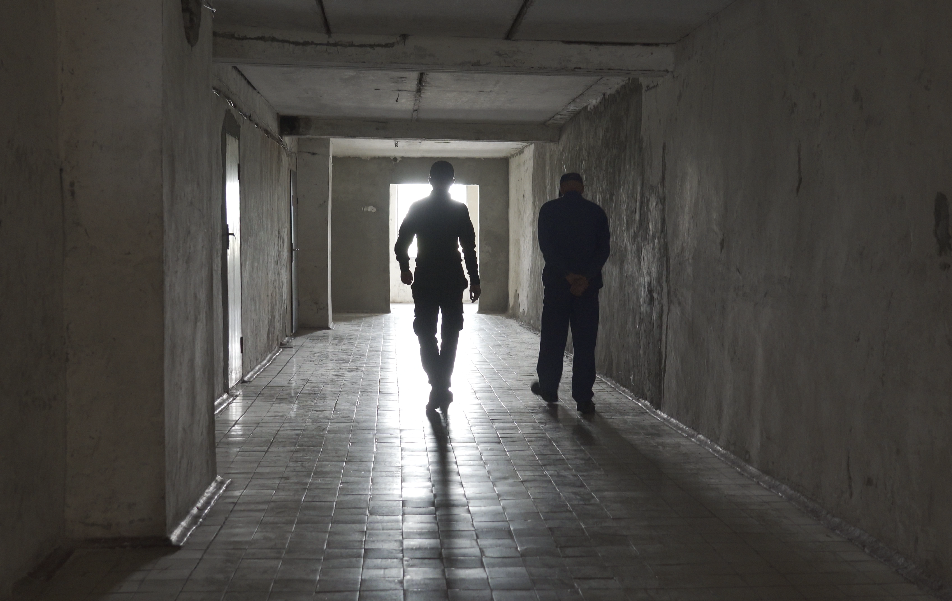A Russian court recently sentenced Ukrainian POW, Vladyslav Plahotnyk, to 18 years in a maximum security penal colony on charges of participating in a terrorist organization and training for terrorism as a member of the Azov battalion, which Russia has designated as a terrorist group. This follows the sentencing of another Ukrainian servicemember, Dmytro Yevhan, to 20 years after being captured defending the Azovstal steelworks plant in Mariupol. Yevhan, who lost both his hands during the fighting, denied the terrorism allegations, stating he was defending his country and fulfilling his military duties. Ukrainian prisoners of war in Russia have reported rough conditions and systemic torture, leading Ukraine to consider an all-for-all prisoner exchange, which will be discussed at an upcoming Peace Summit in Switzerland in June.
President Volodymyr Zelensky expressed the desire for an all-for-all prisoner exchange, with support from other countries, during a speech at the National Academy of the State Border Guard Service of Ukraine. The last known prisoner exchange occurred on Feb. 8 when 100 Ukrainian POWs were returned from Russian captivity. Prior to that, on Jan. 3, 230 prisoners were exchanged in the largest swap since the start of Russia’s invasion. Families of captured Azov fighters are anxiously waiting for updates as Russia obstructs prisoner swaps. Natalia Kravtsova last heard from her son on May 18, 2022, two days after he was captured in Mariupol. Amidst the challenges faced by families of prisoners of war, efforts are being made to negotiate larger prisoner exchanges to reunite detainees with their loved ones.
The Ukrainian government has been vocal about the need for fair treatment of its prisoners of war and the urgency of resolving their situations through exchanges. Ukrainian POWs who have been returned through swaps have described the harsh conditions and mistreatment they endured while in Russian captivity. The case of Vladyslav Plahotnyk highlights the challenges faced by Ukrainian detainees accused of terrorism by the Russian authorities, despite assertions of their innocence and dedication to defending their country. As Ukraine seeks to negotiate all-for-all exchanges and navigate issues related to prisoner swaps, the international community plays a crucial role in supporting efforts to bring back all detained individuals and reunite them with their families.
The ongoing conflict in Ukraine has led to a significant number of prisoners of war on both sides, with Ukrainian detainees facing challenges including rough conditions, mistreatment, and contentious legal proceedings in Russian courts. The Azov battalion, which has been actively involved in defending Ukrainian territories, has been a particular target of Russian accusations and legal actions, resulting in harsh sentences for its members. The case of Dmytro Yevhan, who lost his hands while fighting in Mariupol, exemplifies the personal sacrifices made by Ukrainian servicemembers in their defense of the country. As Ukraine continues to advocate for fair treatment and swift resolution of prisoner exchanges, the scrutiny of international observers and the support of independent journalism play crucial roles in shedding light on the plight of Ukrainian detainees and advocating for their rights.
The involvement of international partners and diplomatic efforts, including discussions at the upcoming Peace Summit in Switzerland, will be instrumental in addressing the humanitarian crisis of prisoners of war in Ukraine. President Zelensky’s commitment to pursuing an all-for-all exchange reflects the determination of the Ukrainian government to prioritize the welfare and rights of its citizens detained in foreign territories. As families of captured fighters wait anxiously for updates on their loved ones, the urgency of securing their release and ensuring their safe return remains a top priority for Ukraine and its allies. By supporting independent journalism and advocacy efforts, individuals can contribute to raising awareness about the challenges faced by Ukrainian prisoners of war and supporting initiatives aimed at securing their freedom and reuniting them with their families.


